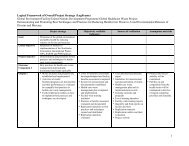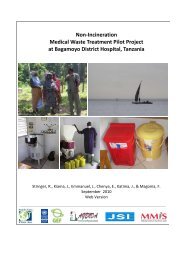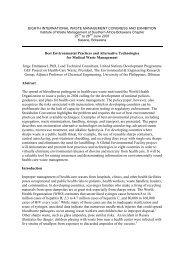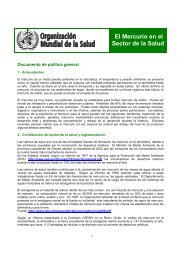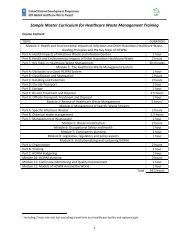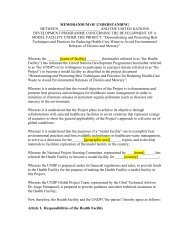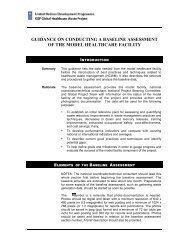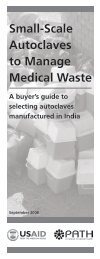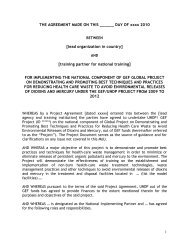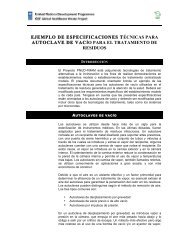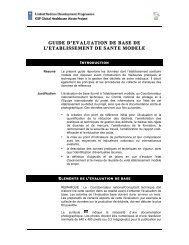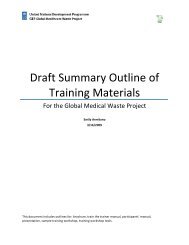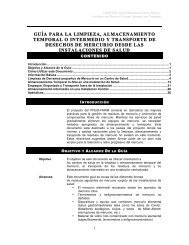Latvia
Latvia
Latvia
Create successful ePaper yourself
Turn your PDF publications into a flip-book with our unique Google optimized e-Paper software.
Health systems in transition<br />
<strong>Latvia</strong><br />
A major population survey on corruption in the health sector, which was<br />
conducted in 2002, reported that only 3% of patients admitted to having made<br />
an unofficial payment for a health care service, while 14% admitted to giving<br />
gifts to health care providers. A total of 45% of respondents rated corruption<br />
in statutory health care services as high or very high, while 50% believed that<br />
the corruption level had increased over the previous three years. At the same<br />
time, respondents were divided over the issue of whether unofficial payments<br />
to health care professionals constitute corruption, with 51% believing that<br />
they do, and 49% believing that they do not. Most of those who believed that<br />
unofficial payments are not corruption believed them to be an act of gratitude.<br />
The majority of respondents (62%) stated that they would not be willing to report<br />
a health professional who received an unofficial payment. The most common<br />
response (51%) to what should be done to prevent unofficial payments was that<br />
salaries of doctors should be increased. The study concludes that there is likely<br />
underreporting of actual unofficial payments, possibly because respondents<br />
knew it was illegal, or because they may have been afraid to do so, or because<br />
making unofficial payments is so universal that many respondents do not think<br />
of them as unofficial (CIET 2002).<br />
External sources of funds<br />
World Bank<br />
In 1999–2004 the World Bank implemented a project involving a loan of US$<br />
12 million for the “<strong>Latvia</strong> Health Reform Project”. The objective of the project<br />
was to assist the <strong>Latvia</strong>n Government in a major health sector restructuring<br />
strategy, addressing a number of diverse issues. This project has formed the<br />
basis of most of the health care services reform efforts of recent years, and is<br />
discussed at length in Section 4.2 Planning and health information management,<br />
Chapter 5 Physical and human resources, and Section 7.2 Analysis of recent<br />
reforms.<br />
World Health Organization<br />
WHO has been active in <strong>Latvia</strong> since 1991 when <strong>Latvia</strong> first joined as a member<br />
country. Its overall goal in <strong>Latvia</strong> is to support the Government in health sector<br />
development, through public health policies, provision of technical leadership<br />
and support of an intersectoral approach to health. Key areas of intervention in<br />
the period 2004–2005 have included tobacco control; review of alcohol control<br />
policy; development of mental health policy; intersectoral collaboration on<br />
the prevention of road traffic accidents; strengthening of the National Baby<br />
Friendly Hospitals initiative (in collaboration with UNICEF); updating of an<br />
environment and health information system; an anti-violence campaign (jointly<br />
89



